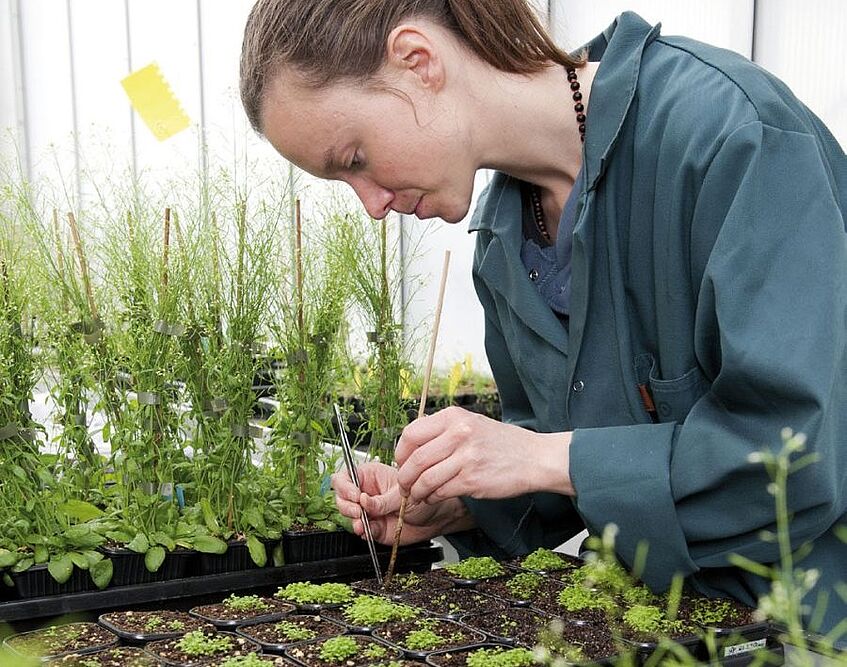Botany (Master)

The master's programme in Botany aims to prepare students for a career as scientists, who are able to deal with current research issues in the field of botany, using modern methods. In addition, graduates are qualified to represent the discipline adequately, both in basic research as well as in applied research areas. The degree programme focuses on combining the special fields of systematic and evolutionary botany, structural botany and molecular plant biology. It promotes interdisciplinary networking, also with non-botanical disciplines.
Master of Science
Degree Programme Code: 066 832
4 semesters / 120 ECTS credits
Language: English
NO entrance examination
Facts & Figures
- Students: n.a.
- Graduates in the last academic year: n.a.
- Number of semesters needed for graduation (median): n.a.
Data updated on: 03.12.2024
Admission Procedure
Information about the admission procedure
Information on Previous Studies:
In any case eligible degree programmes at the University of Vienna:
Getting started
Study Programme
The master’s programme consists of the compulsory modules Systematic and Evolutionary Botany, Structural Botany, Molecular Biology of Plants, Basic Methods of Botany, Advanced Methods of Botany and Specific Research Project, as well as an individual specialisation (elective courses). In addition, students have to write a master's thesis and pass a master’s examination.
Five Concepts
which you will deal with during your studies:
- Structural botany
- Molecular biology
- Evolutionary biology
- Ecology
- Biodiversity patterns
... and many more.
Overview of the programme structure & topics
Here you find the current offer of courses for this programme to gain better insight into the topics and structure. For more information please click on the respective level.
Nach dem Studium
The profile of the master's programme combines expert knowledge of biological topics, focusing on plants and mushrooms, the professional application of specific methods, and general competences (such as transfer of knowledge or teamwork). Accordingly, graduates can either continue their academic training by enrolling on a doctoral programme, or work in various areas of basic and applied research.
Graduates of this degree programme have the opportunity to pursue a career in the following occupational fields:
- research at universities and at public or private non-university research institutions
- basic and applied research in the business sector, or in other business-oriented fields, such as agricultural and environmental sciences, medical and pharmaceutical research.
- species protection at NGOs, environmental organisations or national parks
- in the fields of production, quality control, marketing or technology management in sectors related to (crop) plants
- freelance biological research in the context of documentation, transfer and analysis of scientific data (e.g. work as a reviewer)
- maintenance of scientific collections (e.g. museums, botanical gardens)
- science journalism, environmental education
- project planning, project acquisition and project execution
- research administration and research management
- subject-specific teaching at secondary educational institutions.
Graduates' Perspective on the Degree Programme
Graduates ...
- say that this degree programme receives the grade: 2.0 (good)
- rate the level of difficulty as: 3.8 (high)
→ These results are based on feedback from 8 graduates.
*You can find further assessments of the degree programme from its graduates’ perspective in the graduate survey of the master's programme in Botany (in German).
Graduates ...
- find employment within 3 months after graduation on average.
- earn an average of € 2,951 (women) and € 3,262 (men) gross per month within three years after graduation.
- work full time at a percentage of 69% (women) and 60% (men) within three years after graduation.
*You can find further information on career entry and career paths in the tracking of graduates "MA Biology".
